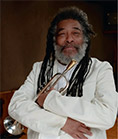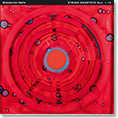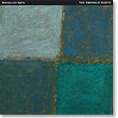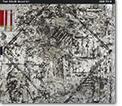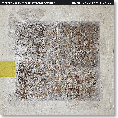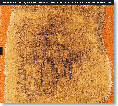THE MUSICIANS

Eero Ojanen (b. 1943) is largely self-taught as a musician. Having started as a jazz musician in the early 1960s, Ojanen played and recorded with a number of the most important Finnish jazz groups during the 1960s, including the Juhani Vilkki Sextet and Quartet, the Pekka Pöyry Quartet and the Otto Donner Treatment. He also frequently worked as a free-lance musician, including appearances with saxophonists Ben Webster, Dexter Gordon and Johnny Griffin.
 Ojanen started his career as a theater composer and musician already
in the late 1960s composing the music for a number of plays and cabarets
directed by Bengt Ahlfors for Lilla Teatern in Helsinki. From 1973 until
1980, Ojanen served as a full-time conductor, composer and pianist at
KOM Theater, an experimental theater group that was hugely influential
during Ojanen´s tenure there and continues to be one of the most
highly regarded independent theaters in Finland.
Ojanen started his career as a theater composer and musician already
in the late 1960s composing the music for a number of plays and cabarets
directed by Bengt Ahlfors for Lilla Teatern in Helsinki. From 1973 until
1980, Ojanen served as a full-time conductor, composer and pianist at
KOM Theater, an experimental theater group that was hugely influential
during Ojanen´s tenure there and continues to be one of the most
highly regarded independent theaters in Finland.
After 1980, Ojanen´s cooperation with KOM Theater has continued
but he has also composed music for a number of plays and movies outside
of that affiliation. Altogether, he has composed the music for over 50
plays, including classics such as A Midsummer Night´s Dream in 1991,
Cyrano de Bergerac in 1993 and Of Mice and Men in 2004. In addition, Ojanen
has composed three full-length ballets, including a ballet based on the
Finnish classic Seven Brothers by Aleksis Kivi in 1980, and a number of
other larger works. Although Ojanen continued to play jazz all through
the 1970s and 1980s, in 1991, he returned to improvised music on a more
regular basis by starting again his collaboration with Teppo Hauta-aho
and, in 1995, co-founding Trio Nueva Finlandia with Hauta-aho and saxophonist/flutist
Seppo Paakkunainen. 
For his work, Ojanen has received a number of awards, including the Yrjö Award for the Finnish jazz musician of the year in 1969, the Jussi Award for best film music for Haaveiden kehä in 2002 and the Finnish State´s Artist´s Pension for a lifetime of artistic achievement in 2004.
Teppo Hauta-aho (b. 1941) first began playing bass by ear without any formal musical education. After learning the basics of prima vista, he was admitted to the Sibelius Academy in 1963 and studied with the legendary teacher Oiva Nummelin, receiving his diploma in 1970. He also studied bass with Frantisek Posta in Prague during late 1960s and early 1970s. Between 1965 and 1972, Hauta-aho was a member of the Helsinki Philharmonic Orchestra and, from 1975 until his retirement in 1999, a member of the Finnish National Opera Orchestra.
 He has received a number of grants and awards over the years for his
work as a classical composer and double bass soloist. Hauta-aho received
the Recognition Award for Composition of the International Society of
Bassists in 2003 and the Lifetime Achievement Award of the British and
International Bass Forum in 2004.
He has received a number of grants and awards over the years for his
work as a classical composer and double bass soloist. Hauta-aho received
the Recognition Award for Composition of the International Society of
Bassists in 2003 and the Lifetime Achievement Award of the British and
International Bass Forum in 2004.
Throughout his career, Hauta-aho has continued to play improvised music alongside with his career as a classical musician and composer. During the 1960s and 1970s, Hauta-aho was a member of a number of important jazz groups including the Juhani Vilkki Sextet and Quartet, the Pekka Pöyry Quartet, Kalmisto Klang (with saxophonist Pekka Pöyry, Seppo Paakkunainen, trombonist Mircea Stan, trumpeter Mike Koskinen and drummer Edward Vesala), the Tuohi Quartet (with Seppo Paakkunainen, pianist Heikki Sarmanto and Edward Vesala), the Mircea Stan Sextet (with Seppo Paakkunainen, saxophonist Pentti Lahti, Mircea Stan, pianist Vladimir Shafranov and drummer Reino Laine) and the Kalmisto Quartet (with Seppo Paakkunainen, trumpeter Jarmo Sermilä and drummer Jukka Wasama).
More recently, Hauta-aho has been a member of Sound Kitchen with trombonist Jari Hongisto and guitarist Hasse Poulsen, the Töölö Bass Trio (with bassists Erik Siikasaari and Heikki Virtanen) and Quintet Modern (with saxophonist Harry Sjöström, trombonist Paul Rutherford, violinist Phil Wachsmann and drummer Paul Lovens). Hauta-aho has also performed as a member of the George Russell Big Band, the Mal Waldron Quartet, the Anthony Braxton Octet and, from 1998 until 2001, the Cecil Taylor Quintet (with Harry Sjöström, cellist Tristan Honsinger and Paul Lovens).

